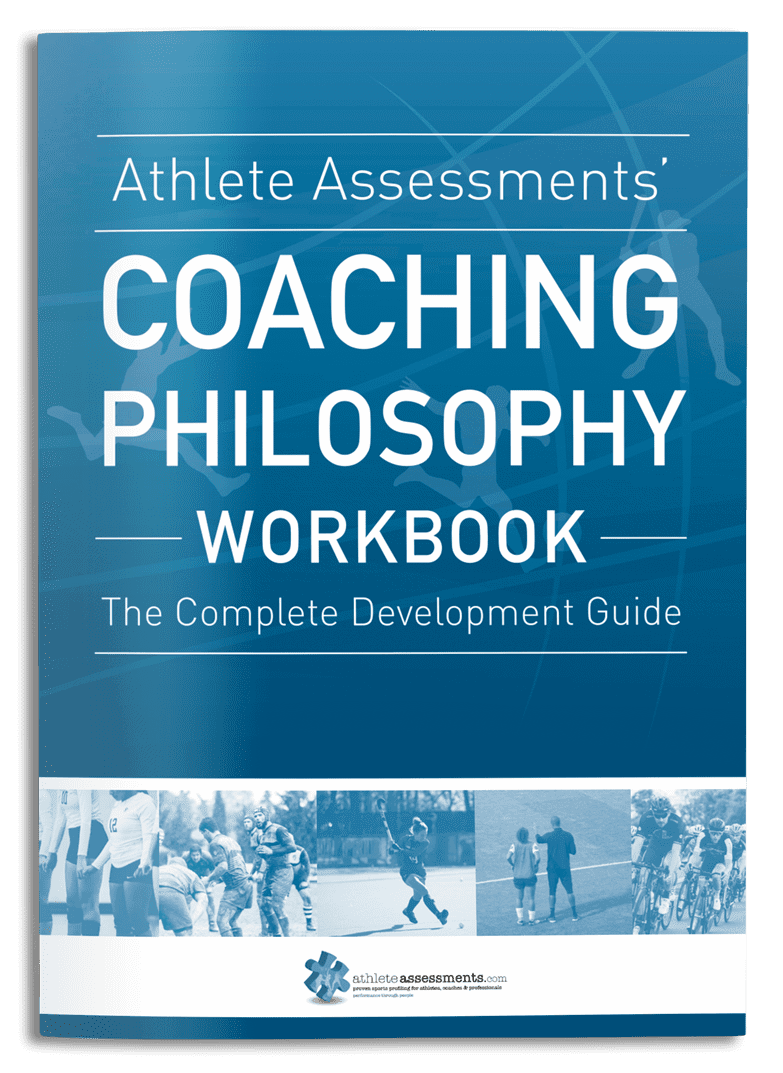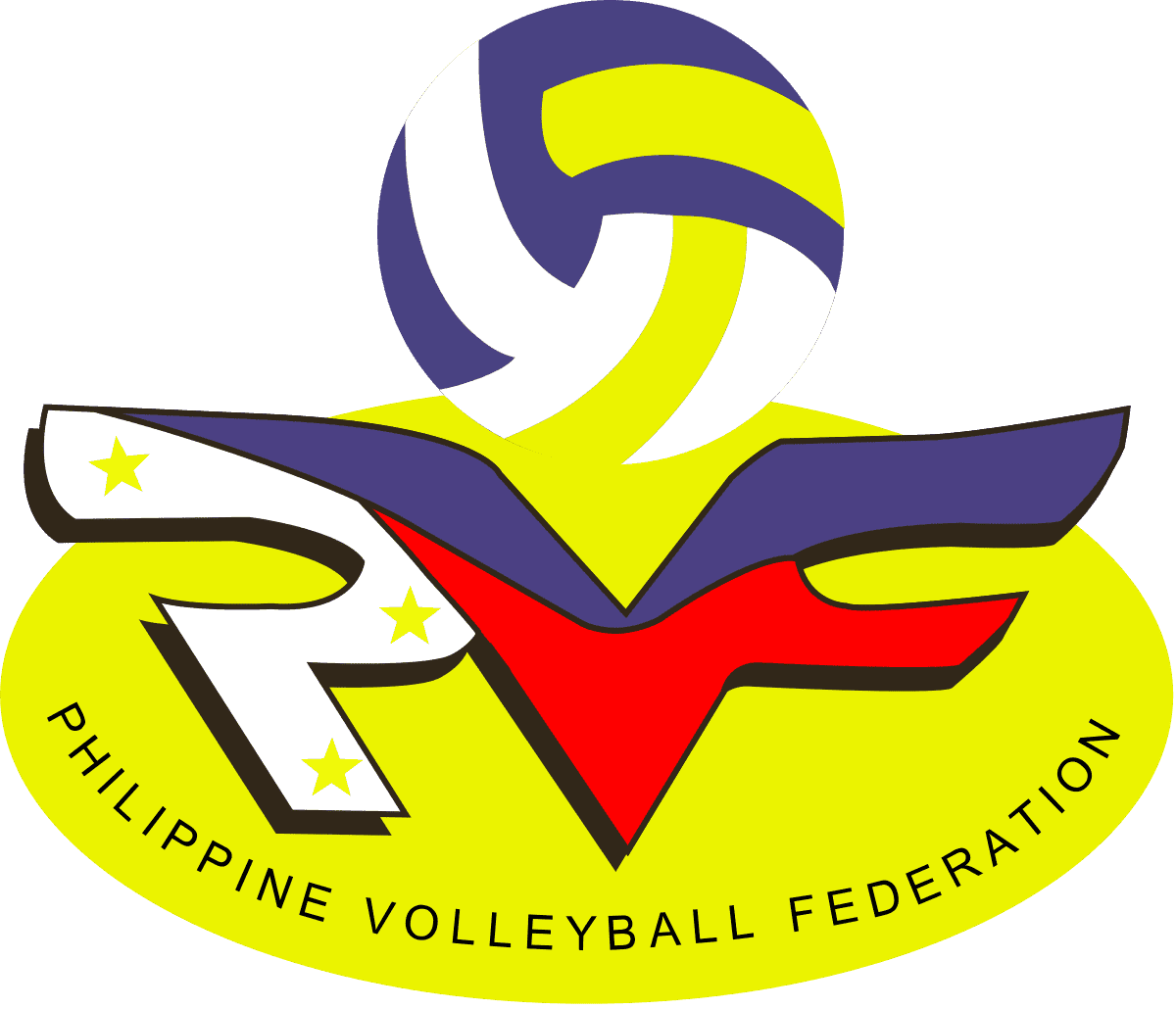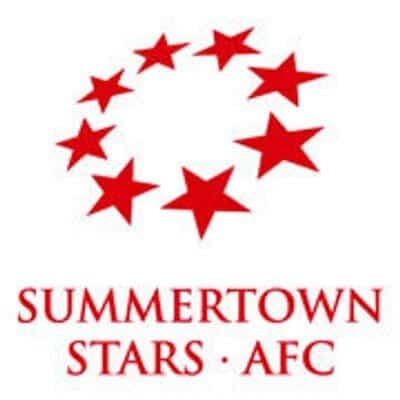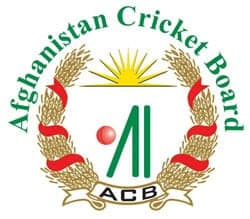At Athlete Assessments, we have found that the coaches and leaders we work with, have a great interest in the coaching philosophies of other coaches. And why wouldn’t they? Seeing and learning about how other leading coaches are defining their philosophies to form the foundation of their successful coaching approach, allows for ongoing growth and development.
Now you too can benefit from the philosophies other coaches have shared with us. You might find these useful in developing or further defining what your own coaching philosophy is. Or you might simply be interested in reading examples of coaching philosophies from other sport coaches.
When you’re done reading these examples, we encourage you to look inward and define your own philosophy if you haven’t already. Or even if you have one, check in and see if it is still aligns with your coaching approach. We have a useful guide to developing and defining your own coaching philosophy.
We also encourage you to contribute your coaching philosophy to this page! There is a form at the bottom of this page for you to share your philosophy with us. We will then add it to the list of examples to provide other coaches with further inspiration and insight.
EXAMPLES OF COACHING PHILOSOPHIES

“My coaching philosophy is: I am a firm believer that if you have knowledge pass it on to those who do not. I also believe that playing sports as a child not only builds character and confidence but also gives a sense of accomplishment. It also prepares children for life, teaching them about working as a team or as a team player, not as an individual. I also feel it can bring a child out of his/her shell or shyness.”
Coach George Hornung
Head Coach
Stafford Soccer Club

COACHING PHILOSOPHY
Workbook - The Complete Development Guide
Coaches are constantly told that having a well-defined Coaching Philosophy is a critical component of a successful career. BUT, it can be a challenge to develop on your own and it takes time to evolve.
We’ve taken years of experience, interviews with leading coaches, research, and testing formulate this workbook for your benefit. Be guided step-by-step through this important process.

“Here is my philosophy: I am a Coach because of my passion for my work. I am able to foster the growth of my players through the numerous opportunities I am fortunate to provide. I will mold a group of individuals to communicate, to be responsible and to hold themselves accountable. I believe in nurturing their dreams to be the best on and off the court. I developed this into words when I attended the Women’s Coaches Academy a few years ago. I look at it often and keep a journal for my own use during the season to help me grow and develop as a Coach.”
Samantha A Lambert
Head Volleyball Coach
Rhodes College, Memphis
“My coaching philosophy is rooted in the belief that every individual has the potential to grow when provided with intentional support, clear expectations, and meaningful opportunities to succeed. Coaching is not all about controlling or correction alone, it is about guidance, empowering, and partnership. Your presence is impactful as your expertise. you should lead with integrity, listen with intention, and stay consistent.”
Martavis Blackmon
Missouri State, Missouri


“My coaching philosophy is pretty basic: To have an environment that encourages athletes to learn and develop on and off the playing field, to create a positive learning environment in good and bad times. I developed this by reading about, listening to and observing other Coaches, Wayne Bennett, Bo Hanson, John Buchanan and John Wright.”
Mark Cole
Vanuatu Cricket
“I think creating an environment that is relaxed and conducive to learning is important. In addition the athlete needs to be aware of the standards and behaviors that all of the Coaches and athletes are prepared to accept to help create the optimal learning environment.
The athlete needs to be given the opportunity to develop his/her skill level in a structured learning environment that constantly challenges the athlete whilst providing both encouragement and support. Each athlete needs to develop their core skills constantly to provide them with a solid base as they progress in their sport. The athlete will benefit when exposed to challenging drills that require effective decision making and precise execution under pressure. The repetitiveness of these varied drills during practice helps develop competency and confidence in the athlete.
When dealing with highly motivated and committed athletes the level of individual communication is important, giving them the opportunity to provide input to help deliver the program that is specific to their development. I believe if you can set some short term goals in consultation with the athlete, this will provide them with direction and motivation that will help to keep them on task.
Finally the Coach needs to demonstrate effective leadership by maintaining the desired standards of behavior within the group that will instill confidence in all athletes knowing that their welfare and development is most critical.”
Grant Jones
Toyota Cup Coach
Wests Tigers Rugby League Football

It’s about the journey vs the destination. Athletes of all ages nurture more fully when they see this in their coaches.
My advice to other coaches is maintaining habit-based philosophy while coaching, and approaching one thing at a time. Positive coaching empowers athletes. Fun is achieved when expectations are met. And finally, talk less.
Ellen Law
NJ Dragon Boat Club
Head Coach TEAM USA Senior Women’s Dragon Boat Program
You may enjoy our article on Pre-Season Preparation Using the Grip Model
“To open minds and hearts; enhance souls by growing righteous values within, and instill that one’s maximum effort on a daily basis is the only pure way to live an honest and fulfilling life.
Sport participation at high levels is not forever. It is reserved for a small percentage of the population. Providing an avenue for young adults to become great people is the only way I know how to change the world for the better. I developed my coaching philosophy based on what is important to me (what I have learned about life and myself). I learn from people and environments by detailed observation. I read and take notes. I use on-line videos and former great Coaches to teach me more about life.”
Coach Mark A. Keller

“Thanks for the opportunity to share some ideas around my own coaching philosophy. Simply put, I try to build high self-esteem in each one of my players. I do that the same way an informed parent would do, by accepting the player for who he/she is. That is the baseline and from there we build on the strength of their personality and work to shore up the areas that are not as strong. I believe a person will seldom, if ever, outperform his/her self-image. So the question is how do you accept a person for just who he/she is? It is my belief, if you get a team with all the players performing up to their positive confident self-image you will have a winning team.
How did I come to this conclusion? Studying my wife coach YMCA soccer, T-Ball, Basketball for 5 years as she coached our kids and others on her team and hardly ever lost a game. She was born with a natural knack of acceptance that I had to learn. I also learned from my stint as a family drug and alcohol counselor. My premise was if a child could recover his/her self-worth from the depths of addiction, then excellence would result if the same principles were applied to your average child wanting to get better.”
Jay Loar
Director of Golf & Head Coach of Men’s Golf
Southern Methodist University
You may enjoy our article on The Critical Role of the Coach
“I believe in a coaching philosophy that is interlaced with “grace” (unmerited favor). If team members embrace this concept they end up coming alongside their teammates, being encouragers, offering forgiveness when necessary, helping teammates to succeed and ultimately creating team success. Anyone can win a tennis match through skill or by cheating. It is playing with integrity, making the right choices during and after each point and playing with heart and no excuses that determines a successful tennis player at Smith College. There is no substitute for hard work and combined with the “servant-leader” philosophy of others first, success is inevitable. This is a tall order but we work across the four years of an athlete’s time here to help the scholar-athlete to grow in this direction. It is still amazing to me to see the results of putting this philosophy in action.”
Christine Davis
Varsity Tennis Coach
Smith College


COACHING PHILOSOPHY
Workbook - The Complete Development Guide
Coaches are constantly told that having a well-defined Coaching Philosophy is a critical component of a successful career. BUT, it can be a challenge to develop on your own and it takes time to evolve.
We’ve taken years of experience, interviews with leading coaches, research, and testing formulate this workbook for your benefit. Be guided step-by-step through this important process.
“The coaching philosophy I follow is an approach developed by and passed on from Tim Gallwey, (The Inner Game of Tennis) to Jim Loehr, (The Power of Story) to Alan Fine (InsideOut Development).
In traditional coaching success is achieved when the Coach, as an expert puppeteer, orchestrates the actions of players according to his own vision. In this model the Coach becomes the energy source which eventually runs dry.
In the Gallwey/Loehr/Fine style of coaching, success is achieved when the coach, as an expert facilitator, removes the interference that blocks the potential of the player. In this model the player becomes the energy source, which not only never runs dry, but ends up igniting the passion of everyone around him.”
Bob Skura
Mental Game Coach – Golf
“My philosophy is through this experience, together we learn to trust in ourselves and in our teammates. We do not know everything and we can all learn something from our team.
Loyalty and patience in yourself and others can carry you further than you can imagine. If we are not here to learn, make life more enjoyable and make memories to carry us a lifetime, then what are we doing here? To look back on this and be proud of all you will accomplish and the amount you will grow will be worth all the hard work.”
Lori Acosta
South Plains College
“Pursue and fight for what you love. Joy drives effort, and purpose fuels progress, which in turn helps unlock your full potential through what you love most.”
Deanne Hankins
South Plains College

You may enjoy our article on Do Your Athletes Care? Athlete Engagement in Sport
Many people want to know if I coach like I outwardly appear to be which is assertive, aggressive, energetic and effusive. Many times I have been called a straight shooter. Some act like that is a bad character trait. I feel it is better to deliver honest news and clear and concise assessments rather than wishy-washy blather meant to assuage an individual’s self-esteem. When given the opportunity I would rather “go through the front door rather than run around the barn”.
I coach high school football and the last thing a 15 to 18 year old kid needs in his life is a Coach constantly in his ear reminding him of how much he is wanting. He already has parents, friends, teachers and others to fill that role. I am an observer and I am a teacher. I use the inevitable failures of the game to instruct proper technique and game savvy.
Above all, I am a teacher, a father and a Coach and want my kids to understand that their “life life” is longer than their football life. We all make mistakes, learn from them.”
Coach Brian Baggott
High School Football Coach
You may enjoy our article on Four Coaching Styles
“My philosophy is to learn about my athlete- not every athlete responds to the same method- some like the repetition, some get bored, some like coached sessions, group workouts, etc I have an extensive evaluation for the athlete to fill out and then we meet face to face…my goal is to learn what motivates the athlete (daily communication, weekly recap, email, phone, texting) what the athletes pain points are (what do they like the least and need the most help with), what is going on in the rest of their life….I gather a lot before we set up a plan. From there I am all about what is realistic, setting attainable goals- long term and short term and keeping the athlete engaged.
No cookie cutter plans, constant feedback and monitoring and regular communication. Come race day there are no surprises….we have practiced it all and emotionally gone through all that is possible.”
Coach Julie Dunkle
You may enjoy our article on Coaches Getting to Know Your Athletes
“The essence of my coaching philosophy is based on long term development of athletes in their technique, tactics, mental approach and satisfaction in learning new skills or enhance existing skills.
I aim to coach athletes the basics in particular skills and then create more awareness how to apply it in competitive situations to see how they use it in their sport. Often during training a Coach can stop the game or drill and explain what they would like to see more of. In a competitive game or match this luxury is not available and the Coach can only have limited influence on the athletes and on the game from the sidelines. Therefore, to me it is important that athletes can assess, evaluate and correct themselves in competitive situations to produce the best possible performance.
In practice this means that the kind of coaching is dictated by the goals that have been set by the Coach and athletes. Most of my coaching is in team sports and therefore involves also a chosen playing style. The coaching is done more on a group level than on an individual level. When there is any individual level coaching it is associated with specific tasks for that position and/or a combination of movements between two interconnecting positions. Often a difference in interpretation is the cause for redirection by the Coach. In this process the Coach will interact with the group and explain his interpretation and look to find agreement with the group to ensure moving forward in the same direction.”
Coach Ezra Duister
You may enjoy our article on How to Improve Athlete Decision Making

“My teaching philosophy is simple, I always provide an opportunity to develop their skills and create a learning environment that is constantly challenging and enjoyable.”
Golam Faruk Suru
Fast Bowling Coach
Bangladesh National Cricket Academy
“In giving any of my advice that I have gained from brilliant teachers and Coaches there is one thing that stands out. The fair and consistent treatment of all the players equally day in and day out. Understand that as Coaches we can never stop learning and the moment we think we know everything it’s time to get out of coaching.”
Chris Codden
Head Wrestling Coach
Manistee High School
My coaching philosophy is very simple, giving back what I was able to learn from my Coaches.”
Jennifer Dindin
PE Faculty Instructor/Athletic Coordinator
Philippine Volleyball Federation


“I want to teach my athletes sportsmanship and how to have fun and to love the game. And knowing that winning is not the reason to play, it is to have fun with the experience and getting to know your team mates and to help each other when its needed.”
Coach Susan Phillips
Maine University
You may enjoy our list of valuable ways to support women coaches
“Doing all things well. Work with confidence in order to develop the skills of an athlete.”
Dexter R. Descargar
Teacher III Dep. Ed.
“To be able to create a positive environment which allows player’s to construct knowledge from themselves. So therefore hey attach meaning to it rather than the Coach barking out information to the players.”
Abideen Shobowale
Manager of Summertown Stars

“Each individual that is involved with our program has the opportunity to develop their talent, self-image and confidence to a level that will be pleasing to God and every-one they associate with on and off the range.”
Tom Patterson
High School Head Coach – Archery
Trigg County School System

“My philosophy is anchored in providing meaningful experience to my athletes while enhancing their skills and values in life through sports. I aim to provide them with the opportunities for physical, social, emotional,and mental enhancement that will lead them to become a good and productive citizen.”
Jose Alther M. Rivera
Athletic Coach/Educator
University of Southeastern Philippines, Davao City

COACHING PHILOSOPHY
Workbook - The Complete Development Guide
Coaches are constantly told that having a well-defined Coaching Philosophy is a critical component of a successful career. BUT, it can be a challenge to develop on your own and it takes time to evolve.
We’ve taken years of experience, interviews with leading coaches, research, and testing formulate this workbook for your benefit. Be guided step-by-step through this important process.
“Everyone has heard the statements “be yourself when coaching”, “live up to the standards you are asking your team to”, “be the example you want them to see”, “show your enthusiasm for the game and for them as individuals” etc. I believe most Coaches get this but what I see every year at the high school level, and especially if you have street Coaches (non-teachers) is the complication of adding to much too soon. I have been a PGA Professional for over 20 years teaching many lessons, clinics, coaching high school teams along the way. What I have learned over the years is that an athlete must have good fundamentals for any sport. Once these are established the finer points of technique can be added. Athletes can begin to help themselves with the knowledge of the fundamentals of their sport. My philosophy is all of the above but first build the best foundation you can then add the bells and whistles.”
Matt Dame
Athletic Director
Grangeville High School

“In every thing you do as a Coach make a positive difference!”
Ian Thompson
Coaching Director
Athletics Edge

“Excellence is not a singular act but a habit. You are you are what you repeatedly do.”
Peter Karshima
Sports Master – Chrisland School Abuja
“My philosophy is to be honest with the job and players, provide good opportunity for your athletes and try to place your athlete in right place at the right time. Don’t compromise in discipline, do the hard work and see your own future picture in your players good future. Be positive in bad and good times.”
Khaliq Dad Noori
National Coach Afghanistan Cricket Board


“Making a positive contribution to society by providing a platform for young people to grow into amazing members of the community and to support them on their personal journey of growth.
Pay it forward.
My advice to other coaches is to look at each child individually and remind yourself that you are an important part of their life. How to you want to be remembered by this person later on in their journey.”
Gabriela Schmidt
Sensei – Wanaka Samurai Karate
“My coaching Philosophy would be that everyone is unique and needs to be treated with respect and encouraged to have a go and be told that they are doing well.”
Gaynor Petchell
Eden Field Archers

ADVICE FOR OTHER SPORT COACHES
“When it is all said and done, remember that in the end, all that matters is not the number of wins we got or the number of trophies we received…but the memories we made and the people we made them with.”
Lori Acosta
South Plains College
“Always remain positive even in tough times, keep it simple as all sports are and never be afraid to make mistakes, its how players learn and how you as a coach learn.”
Mark Coles
Vanuatu Cricket
“Be yourself. Understand yourself. Understand your players. Build their self-esteem. The biggest mistake I have seen is Coaches trying to emulate a successful Coach who was a complete opposite personality wise from who they were.”
Jay Loar
Director of Golf & Head Coach of Men’s Golf
Southern Methodist University
“Remember you are here to help others, not to coach as you want to be coached. That does not work for everyone. Be open to feedback and solicit feedback so you can grow and adapt. Your first year you will make mistakes and it takes time to get in your groove.”
Coach Julie Dunkle
You may enjoy our articles on Athlete Centered Coaching and Athletes’ Learning Styles – A Must-Have for your Coaching Toolbox
“In terms of developing my Philosophy, I feel like it is still a work in progress because I am still fairly young as a Coach and developing all of my ideals. Here are a few things that really helped me this past summer:
- I looked a lot at who I admired as a Coach and I asked myself: What do I like about their style? What are a few of their non-negotiable coaching points that I totally connected with and how do I emulate those in my everyday actions as a Coach.
- I organized every facet that a Coach has to deal with and put it on paper. I called these my “Pillars of Coaching”. For me it makes being a head Coach not such a daunting task to know that these are the 5 basic areas I am going to have to deal with in coaching. Organizing my thoughts to simple concepts was huge for me. I am such a visual learner too, so putting this on a paper for myself to see was great.
- Underneath my pillars of coaching, I made a foundation for myself. My foundation consisted of the things I bring to the game each and every day. I believe I labeled it “My Standard of Performance” This includes things like work ethic, attitude, rules, ways of life, etc. I made sure my foundation was something that I actually do and not something that would be deemed “the right thing to say, feel or do” as a Coach.
This is all part of the process of me growing and being the best Coach that I can be.”
Coach Lizzy Lemire
“Ask yourself: What kind of person do I want to be? How can I become that person? Take action by living as that person. It all starts with a choice – hold the door, or don’t. Respect everyone, or just people who can help you professionally. Understanding is developed through curiosity and learning. Develop your understanding and your perspective will shed the negative aspects of life. In short –learn about life, learn about yourself, and learn about people. Your coaching philosophy will mirror your understanding and perspective.”
Coach Mark A. Keller
Click here to see information on Profiling for Coaches
“My advice to Coaches is to remember that while at times it’s necessary to be authoritative, your goal should always be to coach players past your own level of competence. To do that you must listen and learn the internal story that drives each player and when that story becomes focused just step aside and let the player(s) win.”
Bob Skura
Mental Game Coach – Golf
You may enjoy our article on Athlete Centered Coaching
“Development of a coaching philosophy starts at a very early age. In my case it started when I was a soccer player. As a player you learn from your Coach in what he does during training, how he prepares teams for matches in a physical and psychological way. The identity your Coach creates can leave a tremendous impact in you as a player and one that can form your ideas of a coaching philosophy in later life. When developing your coaching philosophy it is of the utmost importance that it is something you stand for. Players and athletes will sense if you are saying something you believe in or whether you are just saying things. As a novice Coach it is good to look at as much related material as you can. All the information you come across will help you recognize which aspects of the game appeal to you and from that you will start to develop your own coaching philosophy. It is your personal blue-print of recognizable traits as a Coach. No second Coach will have the same things. Another thing to do early on in your career as a Coach is to observe other Coaches. By observing you will start to see how effective Coaches improve their players. You can learn a lot from their organization of training sessions, focus of the training, learning process involved for athletes and satisfaction with the coaching style and approach of the Coach. Also feel free to approach experienced Coaches after a training sessions to ask some questions you had while observing their training. Often Coaches will only be too willing to spend 5 minutes or so as they will have done the same as a novice and appreciate the help they got when they were starting out. Finally, try to find a mentor Coach to whom you can go with questions or just discuss things. It is good to have someone more experienced to bounce your ideas off and find what they say about it. This can also be done with the Coaches you observe. Mentor Coaches can often help you with building up your experience well so you keep on developing.”
Coach Ezra Duister
Click here to see our article on Creating a High Performance Coaching Style
“As Coaches we need to improve and learn everyday to provide the best knowledge possible for our athletes. Above all, make the experience FUN. Making the overall experience FUN = Retention for years to come.”
Chris Codden
Head Wrestling Coach
Manistee High School
“Patience, virtue, dedication, courage, camaraderie, teamwork, passion and love of sports should always be with in you…coaching is not an easy task so always enjoy teaching/coaching and see the result as you go along competing with other teams…fame and glory should not be on top of your head…look into the future of the players you are dealing with… Winning and losing can come anytime…look not into the mistakes of the players instead, guide them through to excel in their chosen field of sports…”
Jennifer Dindin
PE Faculty Instructor/Athletic Coordinator
Philippine Volleyball Federation
“Give to the athlete the wholesome experience in any game, make them to feel that they are important to the team.”
Dexter R. Descargar
Teacher III Dep. Ed.
“Be yourself and try to be able to feel interacted with the players. State the positives but also be constructive with the players.”
Abideen Shobowale
Manager of Summertown Stars
“It’s about the athlete. Show them you care and love them as your own and they’ll perform to a level that will be equally rewarding to you and your team.”
Tom Patterson
High School Head Coach – Archery
Trigg County School System
“Keep you passion in promoting your sport discipline by providing our children the opportunity to engage into sports and physical activity.”
Jose Alther M. Rivera
Athletic Coach/Educator
University of Southeastern Philippines, Davao City
“Keep It Simple Stupid’ is still the best way to go. Without athletes knowing the fundamentals you will only confuse them and find yourself very frustrated as well as losing the athletes attention, love of the game, respect for you, and possibly giving up on the sport they love. Good Luck.”
Matt Dame
Athletic Director
Grangeville High School
“A Coaches actions impact directly and indirectly on so many levels. With the athlete, family, friends, college, supporters, sponsors, controlling bodies, the community they live in and with luck, the nation. Make sure your words reflect your actions and if you have not made a contribution in doing this, ask yourself is your coaching about your athlete/s or team or is it about you?”
Ian Thompson
Coaching Director
Athletics Edge
“Be yourself and be what you repeatedly do.”
Peter Karshima
Sports Master
Chrisland School Abuja
“Philosophy matters – Mental , social, tactical, and physical fitness should be optimal.”
Muhmed Ssegonga
Ministry of Gender,Labour, and Social Development

COACHING PHILOSOPHY
Workbook - The Complete Development Guide
Coaches are constantly told that having a well-defined Coaching Philosophy is a critical component of a successful career. BUT, it can be a challenge to develop on your own and it takes time to evolve.
We’ve taken years of experience, interviews with leading coaches, research, and testing formulate this workbook for your benefit. Be guided step-by-step through this important process.
Now it’s your turn!
What’s your Coaching Philosophy?
This site is protected by reCAPTCHA and the Google Privacy Policy and Terms of Service apply.
We will always respond within 48 hours. Fields with Asterisks (*) require completion. We respect your privacy. Your details will not be used in any way other than a quick call or email to see how we can be of assistance with your online requirements.


